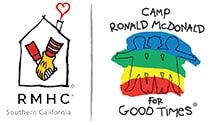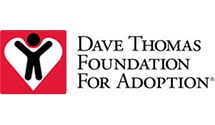Patience Igwe
“The most rewarding experience as a nurse is the ability to smile to a patient and they smile in return.” Patience Igwe is currently working as a RN for a specialist Long Term Acute Care Hospital. My journey to nursing is an interesting one born out of the desire to know. People say that everyone has a story. Below is my story to nursing.
My name is Patience Igwe. I am a registered nurse with a bachelor’s degree in nursing and recently completed MSN in Nursing Administration. I reside in Columbus, Ohio, the Buckeye State. I have been a medical-surgical nurse with majority of my nursing experience in the Long Term Care Nursing Facilities for about eight years. Currently, I work as a registered nurse (RN) for a specialist Long Term Acute Care Hospital (LTACH).
Prior to becoming a nurse, I had close family members die and had very little understanding of their disease conditions. As a mother myself, I wanted to be quite knowledgeable in health conditions so I can better take care of myself, family members and now the patients that I care for at work. The experience has been challenging, but rewarding. There are many challenges facing the nursing profession. In my opinion, the biggest challenge facing nurses is the patient-to-nurse ratio especially in the Long Term Care Facilities (nursing homes). In most nursing homes, the ratio is between 20-30 patients depending on whether you are in the long term care or skilled nursing unit. Hospitals have gotten better. The patient-to-nurse ratio in the hospitals is about five patients to one nurse in the general nursing floors and about 2-3 patients to one nurse in intensive care units. Even in these cases, the level of patient acuity can be overwhelming even with the relatively smaller numbers.
Other challenges include dynamic nursing environmental changes such as technology, tight government regulations, the fear of law suits and inadequate mentoring programs. Though nurses face a lot of challenges in the work place, a lot has been done to improve the image of nursing ranging from salary, credentialing, autonomy level, scheduling and nursing uniforms, among others. I am one of the nurses who is happy that nurses are no longer required to wear white-only scrubs and a white hat.
The advancement of nursing education up to masters, PhD and Advanced Nurse Practitioners levels are some of the ways stakeholders have tried to improve the image of nursing. Salaries have also increased over the years, making the profession attractive and respectable. In my opinion, the influx of men into the profession is largely due to salary improvement. Prior to salary improvement, it used to be only a woman’s job because the pay was nothing to be proud of. Most hospitals have embarked on programs to encourage their nurses to advance their nursing education from being Licensed Practice Nurses to higher levels of nursing education such as BSN, MSN, APN, among others. Nurses are taking advantage of these programs and my place of work has such program in place. Mentoring of new nurses is very important if a company wants to maintain high retention level of its new nurse hires. I experienced the problems associated with lack or poor mentoring of brand new nurse out of school.
The challenges are overwhelming and can be intimidating. Mentoring requires more experienced nurses training new hires. The mentors are nurses with more experiences, patient and like to teach. The mentors should minimize their level of judgment and realize that these new nurses are fresh and want to learn. As a novice, the least thing a new nurse wants to feel is the sense of stupidity from a trainer/mentor especially as people have different ways of learning. I also like to model to a new nurse. For instance, if a new nurse observes that I practice hand washing and use my protective equipments per protocol, he or she will be encouraged to do so. This way, the nurse becomes a better nurse.
Volunteering in areas of need in society is good for everyone, not just for nurses. As a nurse, I find time to volunteer as much as I can. I volunteer in some soup kitchens, in my church and deliver Meals-on-Wheels. Volunteering helps us to step out of our comfort zones to help others in need. It is a great feeling. Yes, nursing is about healing the body, minds and hearts of patients and their families. Having gone through formal nursing education and gained nursing care experience, this description of nursing as a profession is very true.
A simple illustration is that a sick or ill patient is not a happy person. May be there are a few able bodied persons out there who want to depend on somebody else to take complete care of them in all aspects of life. If not, I believe that a healthy, active and independent person is a happy person. A person who has been used to being in control of his or her life will, obviously, not be happy when he or she has to completely depend on somebody else. That is why a lot of patients go into depression. This becomes an important part of nursing to be able to tune-in to patients’ feelings, engage them into communicating their feelings and doing even the simplest thing as rubbing their cold feet to put a smile on their faces. Sometimes, the high patient-nurse ratio and all the demands of nursing make it difficult for us to do those simple things that can put a smile on a patient’s face. We still have to try.
The most rewarding experience as a nurse is the ability to smile to a patient and they smile in return. I know that most patients are not happy when they are in the hospitals or nursing homes. Which sick person will be? It is difficult to be happy when you think of all the thousand things you could be doing outside and here you are stuck in the hospital bed. That is why it is important to show gratitude and help a sick person know that even though we cannot control all things that happen to us, nurses can help put a smile to their not-so-happy faces and place a soft touch to their achy bodies. This is my story. What is yours? Let us share.




